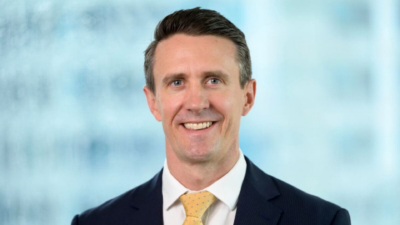Pension funds rebound but see geopolitical, climate challenges ahead: TAI
The latest Thinking Ahead Institute (TAI) annual study of the 300 largest pension funds across the world shows assets under management for the industry rose 10 per cent year-on-year, almost recouping the 13 per cent drop of 2022.
But in spite of the performance boost, many of the largest pension funds have yet to retake previous record highs, the report says.
“While it is positive to note a return to growth among the world’s largest pension funds in 2023, the combination of a more uncertain macroeconomic environment and rising geopolitical instability means there is increasing complexity in the investment landscape,” TAI director Jessica Gao said in a statement.
“Last year was characterised by the rising inflation and interest rate environment, both of which have since tapered off; but the outlook is by no means certain. Although the first half of 2024 has offered a degree of stability, uncertainty is still high, with volatility persisting in the global economy, heightened by geopolitical developments including multiple significant elections.”
A 2024 TAI survey found 84 per cent of large global asset owners ranked geopolitical confrontation as the most significant risks facing investors followed by climate change (72 per cent), inequality (48 per cent) and the “plumbing of the financial system” (36 per cent).
According to the TAI top 300 report, pension funds are increasingly turning to methodologies such as the total portfolio approach (TPA) to manage such growing complexities. The study also notes that the “emergence of 3D investing (aka system-level investing), which integrates the three dimensions of risk, return and impact, is both important and necessary”.
“This approach recognises that the returns we seek can only be realised within a well-functioning and sustainable system,” the TAI report says.
TAI also highlights a size impact on portfolio management styles with larger funds more likely to in-house investment capabilities while small-to-medium asset owners increasingly hand over duties to implemented consultants (also known as ‘outsourced chief investment officers’).
Overall, the top 300 pension funds – a sector split almost equally between government-owned and private schemes – saw assets under management rise to US$22.6 trillion as at the end of 2023 from US$20.6 trillion 12 months prior.
“Growth has remained faster among the biggest schemes, as the top 20 largest pension funds in the world recorded an increase in assets of 12 per cent during the last year, outpacing their smaller peers,” the TAI release says. “This faster growth also holds true over time, with a compound annual growth rate (CAGR) for the last five years of 5.4 per cent for the top 20 pension funds compared to 4.7 per cent for the entire top 300.”
However, NZ and Australia rank among the fastest-growing jurisdictions among global pension peers over the five years to the end of 2023, the report shows.
NZ is slightly above Australia in the five-year asset-growth rankings but behind a pack of five countries led by Mexico. Listed at 139th, the NZ Superannuation Fund (NZS) is the sole Kiwi entry in the TAI top 300 table, while Australia represents more than 5 per cent of total assets under management in the TAI top 300 universe, covering 17 funds including the US$204 billion AustralianSuper, which hit the high spot of 16th.











